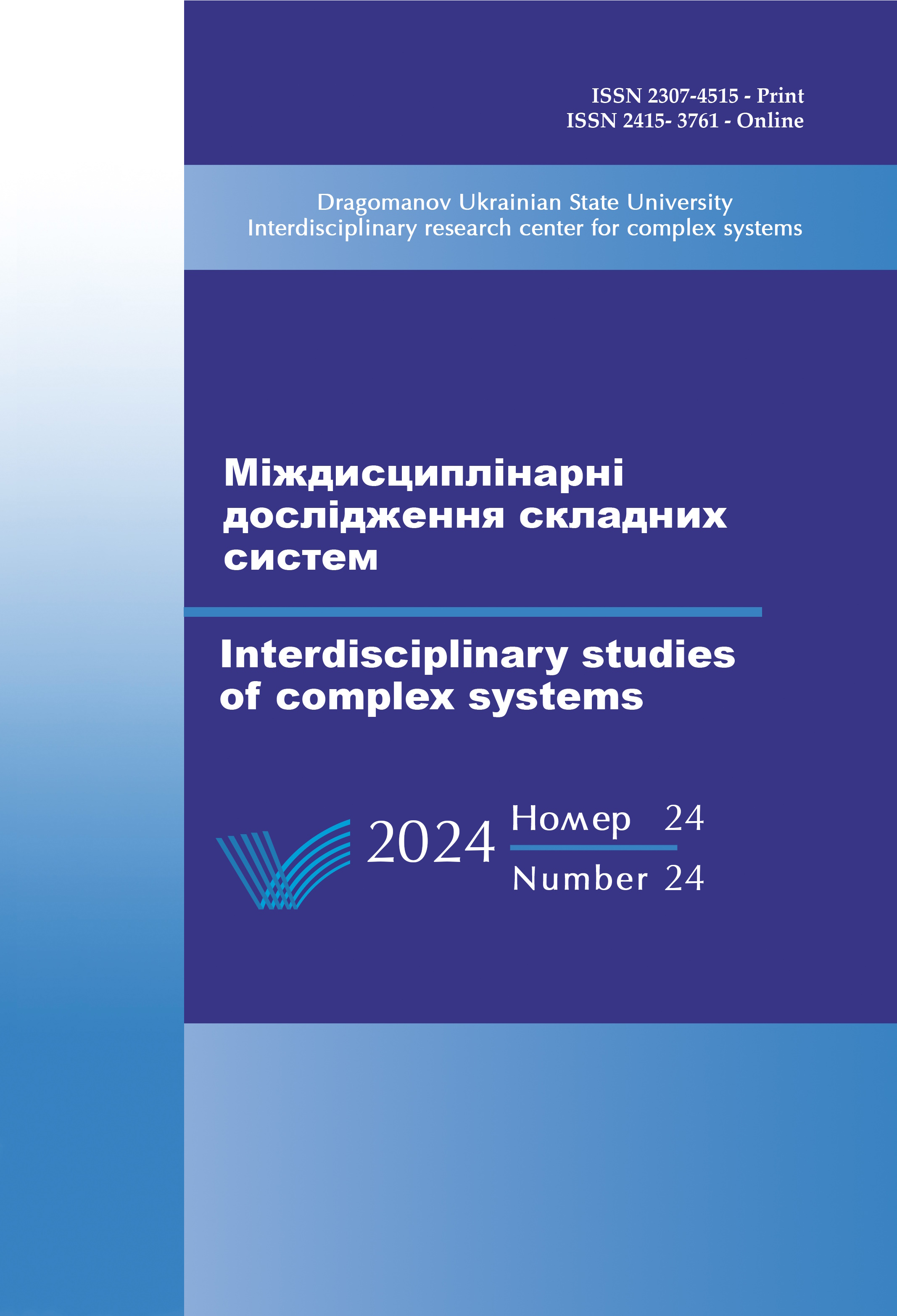CHAOS-THEORETICAL IMPLICATIONS OF LUHMANN'S THEORY OF SOCIAL SYSTEMS
DOI:
https://doi.org/10.31392/iscs.2024.24.035Ключові слова:
chaos, instability, parameters of order, communication, signsАнотація
The article is devoted to the question of the sociological interpretation of chaos theory. Such an interpretation is necessary to overcome the distance between technical and humanitarian knowledge. A methodological transition from the general scientific level of understanding the phenomenon of chaos to the sociological level of its measurement is accomplished by linking sociological and chaos-theoretical categories.
The article is divided into two main sections:
- the first section will provide a brief introduction to chaos theory and explain the concept of "deterministic chaos",
- the second section contains a new overview of the possible applications of chaos theory in the social sciences.
The well-founded methodological basis for the applications was created by the famous German sociologist Niklas Luhmann. As part of his theory of social systems, N. Luhmann dealt with the search for the parameters of order in communicative processes. This question is posed by N. Luhmann in his work “Social Systems” (1984). He uses a semiotic approach to communication in order to make chaos theory applicable in the social sciences and to be able to offer the appropriate methodological tools. With the binary coding of all possible statements as simple "yes/no differences", Luhmann reformulates the general concept of signs by speaking of the difference between identity and difference. The chaos dynamics of communicative potential are transformed into stable communication processes through the use of signs.
Посилання
Leonid Hubersky, Oksana Zhylinska. 2021. Science in the modern world: from value to complexity. Interdisciplinary Studies of Complex Systems, No. 18, pp. 53–60. DOI: https://doi.org/10.31392/iscs.2021.18.053
Loistl, Otto, Betz, Iro. 1996. Chaostheorie: zur Theorie nichtlinearer dynamischer Systeme. München, Wien: Oldenbourg. 124 S. ISBN 3-486-23813-2
Lotman, Juri. 1981. Kunst als Sprache. Untersuchungen zum Zeichencharakter von Literatur und Kunst. Leipzig, Verlag Philipp Reclam jun. ISBN-10: 3-225-14526-2
Luhmann, Niklas. 1984. Soziale Systeme: Grundriß einer algemeinen Theorie. Frankfurt am Main: Suhrkamp. 674 S. ISBN: 351857700X
Luhmann, Niklas. 1987. Die Autopoiesis des Bewusstseins. In Hahn, Alois & Volker Kapp (eds.), Selbstthematisierung und Selbstzeugnis. Bekenntnis und Geständnis. S. 25-94. Frankfurt am Main: Suhrkamp. 330 S. ISBN 3518282433
Mkrtichyan, Artur (ed.). 2015. Armenians around the World: Migration and Transnationality. Frankfurt am Main, Berlin, Bern, Bruxelles, New York, Oxford, Wien: Peter Lang. 280 p. ISBN 363166446X
Nicolis Grégoire, Ilya Prigogine. 1987. Die Erforschung des Komplexen, München: Piper. 384 S. ISBN: 3492030750.
Rott, Hans. 2022. Was ist Zufall? Kontingenz ‒ Unvorhersagbarkeit ‒ Koinzidenz. In Konstantina Papathanasiou (ed.), Zufall: Rechtliche, philosophische und theologische Aspekte. S. 34-51. Berlin: Duncker & Humblodt. ISBN 978-3-428-18621-1.
Schmidt, Jan C. 2022. Philosophy of Interdisciplinarity. Studies in Science, Society, and Sustainability. London and New York: Routledge. http://dx.doi.org/10.4324/9781315387109-1
##submission.downloads##
Опубліковано
Номер
Розділ
Ліцензія
Автори, які публікуються у цьому журналі, погоджуються з наступними умовами:- Автори залишають за собою право на авторство своєї роботи та передають журналу право першої публікації цієї роботи на умовах ліцензії Creative Commons Attribution License, котра дозволяє іншим особам вільно розповсюджувати опубліковану роботу з обов'язковим посиланням на авторів оригінальної роботи та першу публікацію роботи у цьому журналі.
- Автори мають право укладати самостійні додаткові угоди щодо неексклюзивного розповсюдження роботи у тому вигляді, в якому вона була опублікована цим журналом (наприклад, розміщувати роботу в електронному сховищі установи або публікувати у складі монографії), за умови збереження посилання на першу публікацію роботи у цьому журналі.
- Політика журналу дозволяє і заохочує розміщення авторами в мережі Інтернет (наприклад, у сховищах установ або на особистих веб-сайтах) рукопису роботи, як до подання цього рукопису до редакції, так і під час його редакційного опрацювання, оскільки це сприяє виникненню продуктивної наукової дискусії та позитивно позначається на оперативності та динаміці цитування опублікованої роботи (див. The Effect of Open Access).











